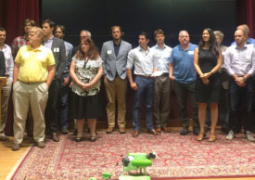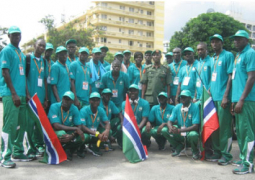When the case was called, the state counsel, MB Abubakar, told the court that he has an application before the court to bring additional witnesses to testify, to which defence counsel EA Singhateh did not object.
In his testimony, Mod Ceesay said he is a public servant who lives in Brusubi and knew the accused person.
In May 2013, the Ministry of Finance received correspondence from the World Bank in respect of the accused person, who was the former GEAP and later WAAPP coordinator, he said.
The first correspondence raised some issues about ineligible expenses under the GEAP project; the other suggested that the project coordinator, who was the accused person, be replaced, PS Ceesay told the court.
The Ministry of Finance as the focal ministry, and he as the DPS at the time, in charge of International Corporation, instructed one Lamin Camara to transmit the World Bank letter to the Ministry of Agriculture, he added.
Asked by the state counsel to tell the court how the GEAP project came about, PS Ceesay said GEAP was an EU-financed 5.3 million Euros World Bank-administered programme in The Gambia.
The letters from the World Bank and the letter from the Ministry of Finance to the Ministry of Agriculture were shown to him and he identified them.
The state counsel then applied to tender the said letters as evidence in court, which were admitted as exhibits.
Asked to shed light on what ineligible expenses represented, PS Ceesay said ineligible expenses related to two issues: one is per diem and the other was payments made to project staff during the transition from GEAP to WAAPP.
He said ineligible expenses could be defined as expenses that are made in respect of goods, works or services that were not included in the list of goods, works and services in the project document.
He added that the other aspect is payment that is inappropriately made and not approved; and the third dimension is any payment that was made outside the project period.
Under cross-examination, the witness said the difference between the GEAP and WAAPP projects was that GEAP was a national programme whereas WAAPP is a regional programme.
He said all unutilized funds at the end of the project must be returned to the administrator, in this case the World Bank.
The witness also told the court about the per-diem and payment to the project staff.
He said the accused also paid himself per-diem for attending a seminar in Dakar organised by Coraf. They got to know from the World Bank through a supervision mission that the accused received per-diem twice, but he refunded the money later.
The witness also informed the court that they received a letter from the Ministry of Agriculture explaining the queries about the per-diem and the payment to the project staff. A copy of the said letter was tendered in court as defence ID.
Counsel then applied for the witness to bring along the original copy of the said letter, which was granted.
The case was adjourned till 4 December 2014.
Read Other Articles In Article (Archive)
British national, Gambian accomplice case adjourned
Apr 7, 2010, 2:45 PM



